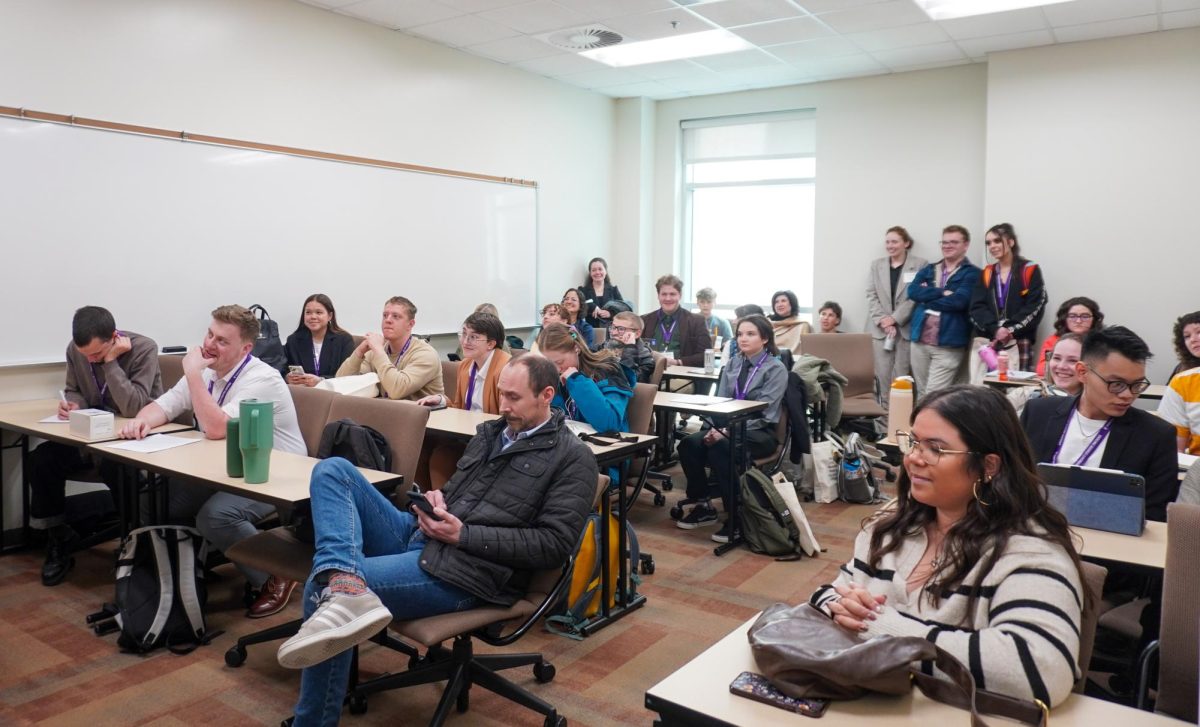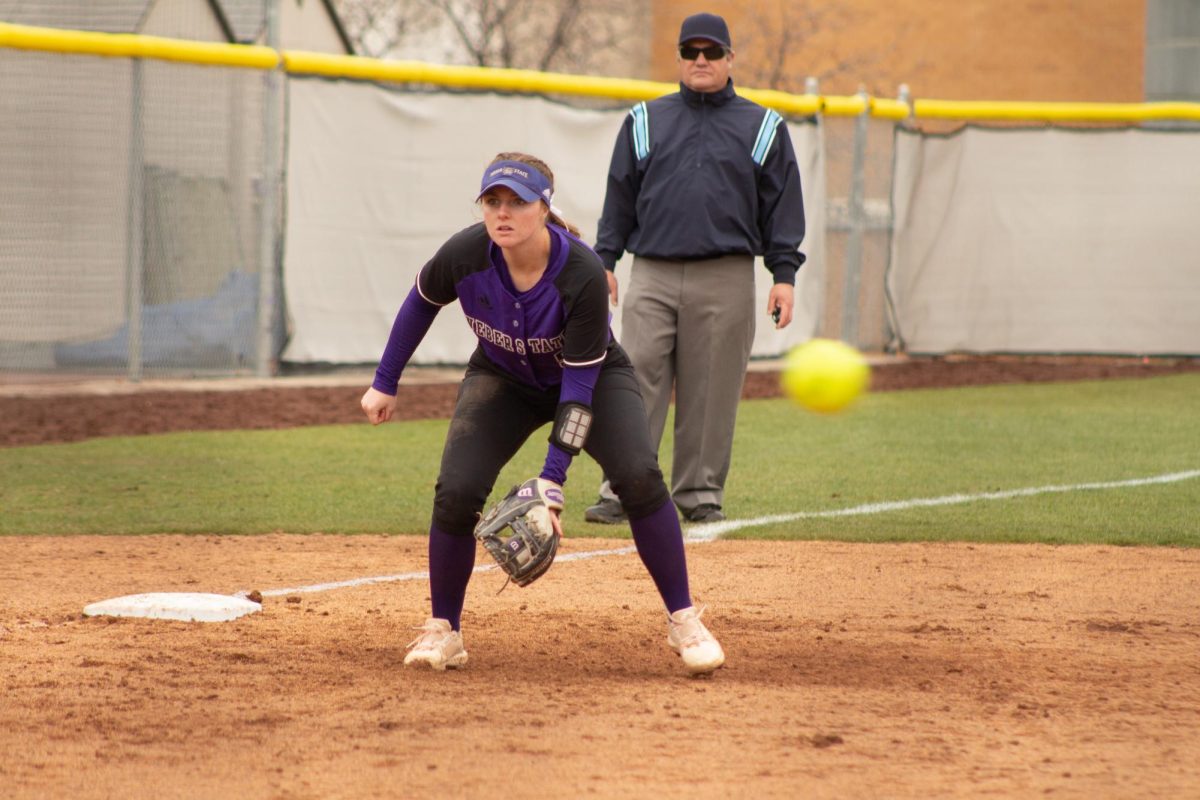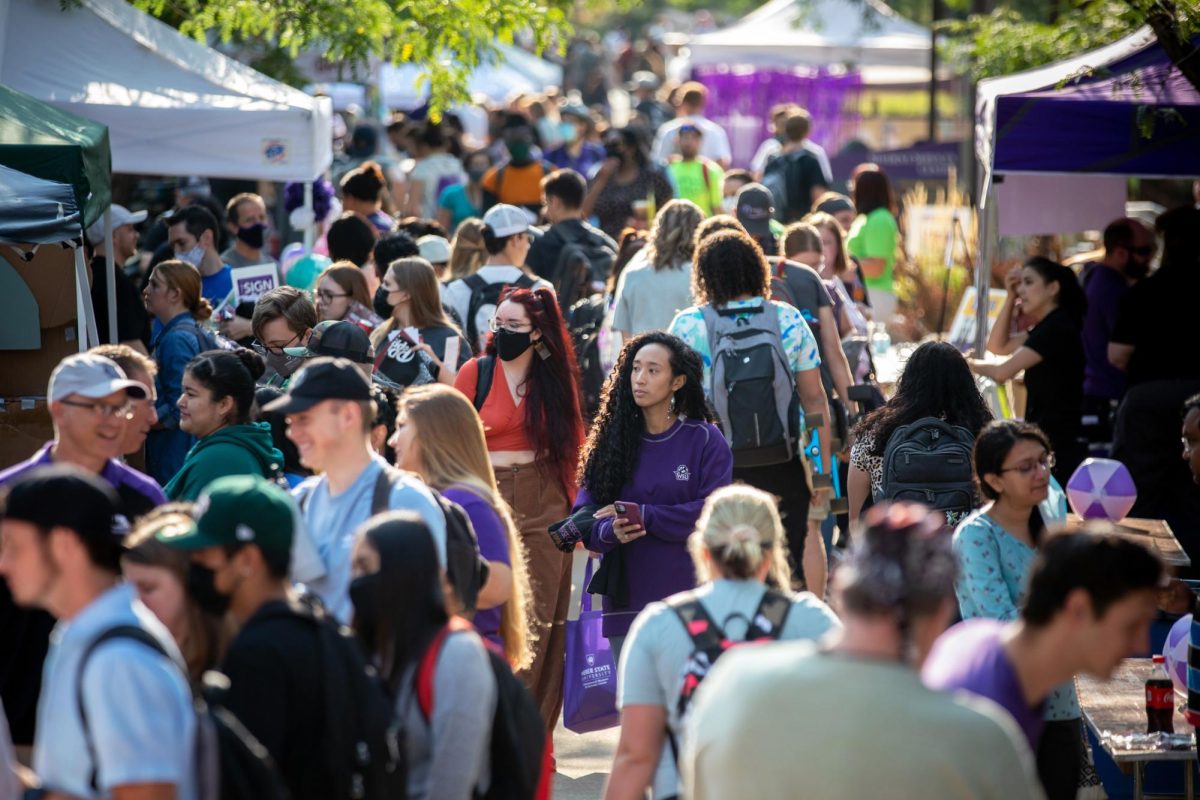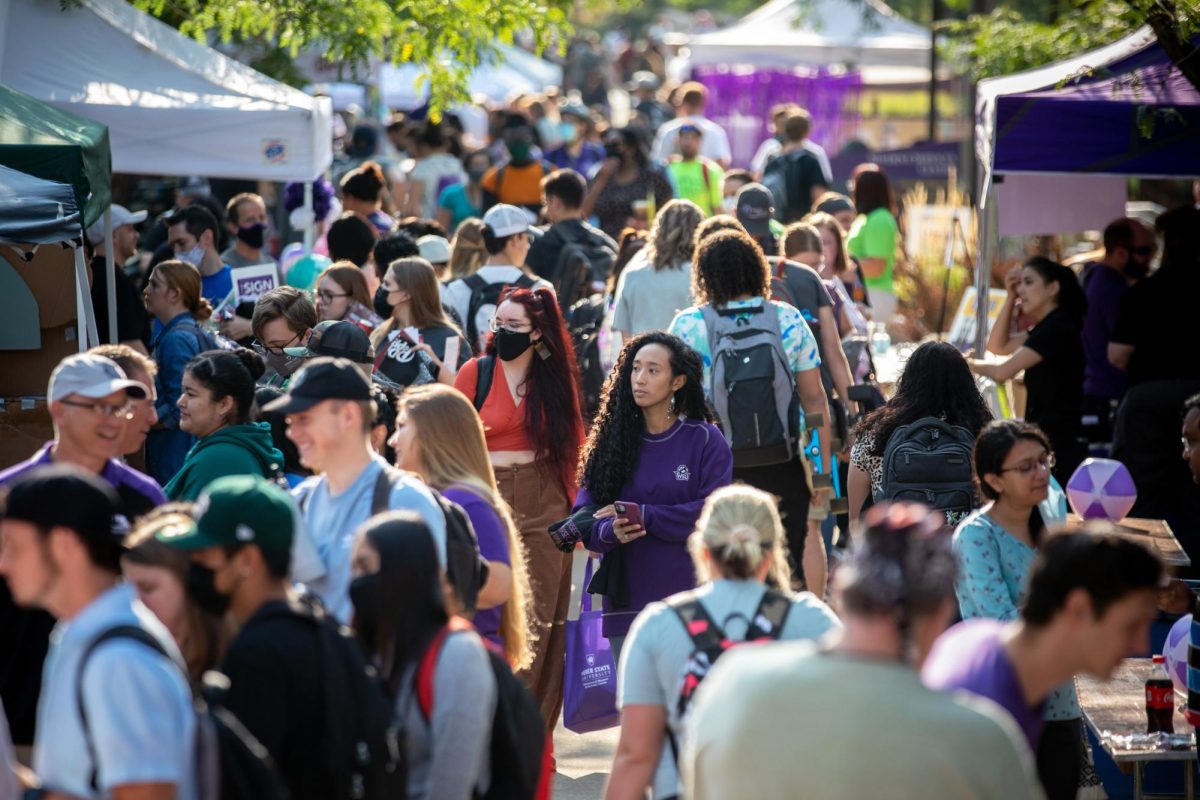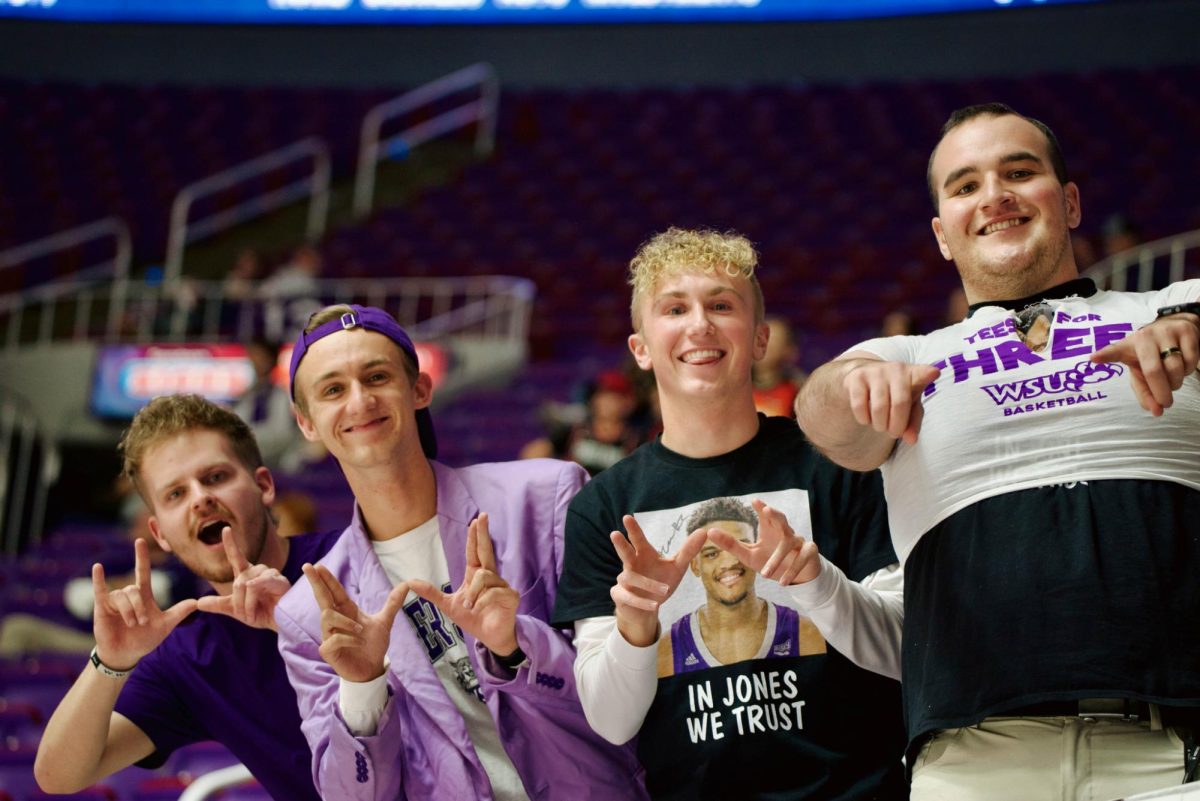
Living paycheck to paycheck is something students know about. Nazneen Ahmad, an associate professor of economics at Weber State University led a discussion about the pros and cons surrounding minimum wage.
The discussion was put on by the American Democracy Project as part of their “Powered by Pizza” series. Each discussion picks a current issue that the American Democracy Project feels students should be informed about.
“Minimum wage was brought about by Congress as part of the Fair Labor Standards Act in 1938,” said Ahmad to begin the discussion, “and today has become a very hot-button issue.”
Ahmad first talked about the cons that would come with raising minimum wage. A con she focused on was the fact that employers who raised their minimum wage would then in turn have to raise the price of their products.
The question of why this would happen was raised and Ahmad went on to explain, “Ultimately they will have to increase the price because they are profit maximizers. They cannot increase the pay for their employers without also charging us, as consumers, more for the product. We will have to share the burden.”
Another con is the issue of poverty. “Those who want to raise minimum wage are waging a war on poverty,” said Ahmad.
Ahmad discussed the ideas of those who oppose raising minimum wage, saying the opposition believes it wouldn’t really get anyone out of poverty.
“The minimum wage increase would cause them to lose their benefits from the government. And the increase wouldn’t make up for the benefits they would lose,” said Ahmad.
The discussion switched gears halfway through to allow the focus to switch over to the pros of raising the minimum wage.
“If minimum wage is raised it will not only be those in poverty who see an increase in their paycheck. Middle-class workers will also see an increase of cash flow,” Ahmad told students, “which will help businesses to keep their doors open.”
Though the benefits wouldn’t end there. If middle-class workers saw in increase in their pay they would in turn buy more goods, encouraging businesses to expand which would ultimately lead to the business needing to hire more employees and create more jobs.
“Honestly it can be hard sometimes to find a speaker that will give both sides of a topic and I thought Nazneen Ahmad did that very well today,” said Colt Jarvis.
Leadership Vice President Marissa Questereit said she thought the discussion was really good because the minimum wage affects everyone.
“I’ve worked in a minimum-wage job before, so I wouldn’t be opposed to raising the minimum wage,” Questereit responded when asked if she would support the minimum wage being raised. “But I can also see the cons of raising it.”
The American Democracy Project will hold their next big event on Feb. 25. The event is called Deliberative Democracy Day and will be held in the Shepherd Union Ballrooms from 11 a.m. to 2 p.m. Students, faculty and staff will be allowed to participate in group discussions and panels.
For more information about the American Democracy Project and upcoming events, visit their webpage.








